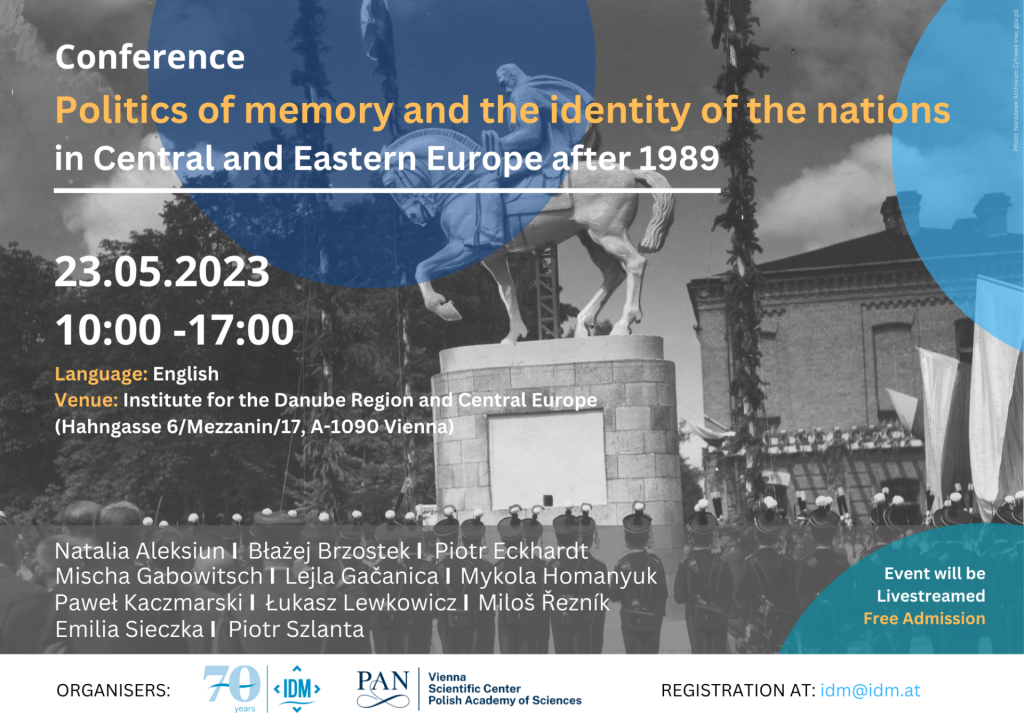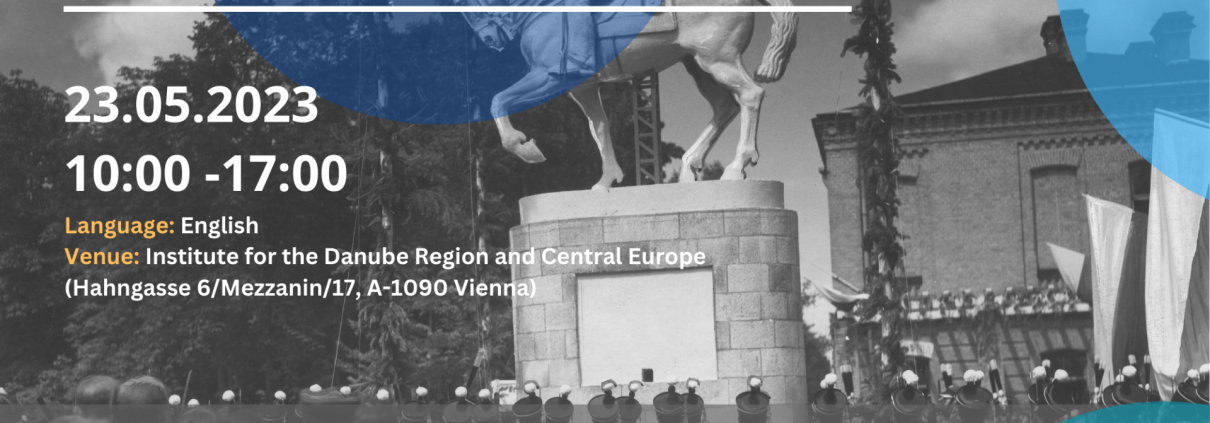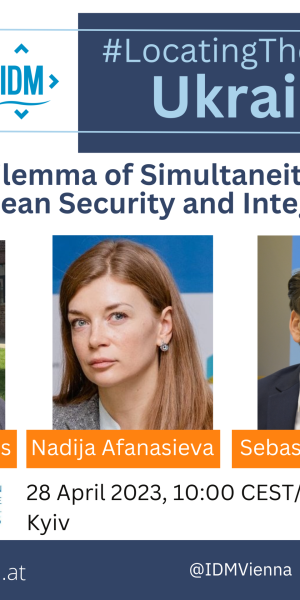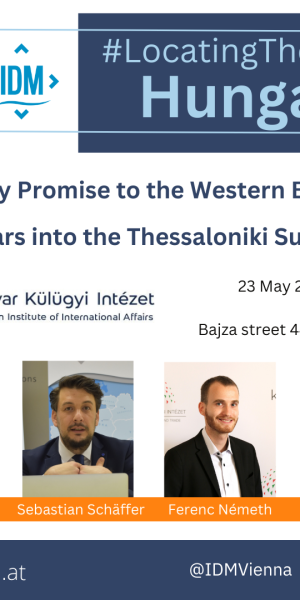Politics of Memory and the identity of the nations in Central and Eastern Europe after 1989
Date/Time
May 23, 2023
10:00 - 17:00 CEST/CET

Conference
23. 05.2023, Tuesday, 10:00 – 17:00
LANGUAGE: ENGLISH
REGISTRATION AT: idm@idm.at
Download the Conference Program here.
Venue: Institute for the Danube Region and Central Europe, Hahngasse 6/1/24, 1090 Vienna
History, apart from being a field of science, is also a useful tool for making politics and influencing communal consciousness. After the fall of communism and the Iron Curtain in 1989, it became an important instrument in shaping new, democratic societies, as well as a weapon in international disputes. In addition, it is the subject of heated political debates. Since the 19th century, History has played a special role in the instituting of Central and Southeastern Europe’s nations. The often-rivalling visions of the past, promoted by national activists, helped them build modern nations and legitimized their right to ethnically mixed territories. In the interwar period (1918 – 1939), history was an important element of the ideology of the states that emerged as a result of the collapse of multinational empires in this part of the world. The conference will offer a forum for a broader debate on this topic, taking into account the historical context and experiences of individual countries in the region. In particular, the focus of the conference will be set on finding an answer to the following questions (indicative list of topics):
• Does history serve politics? How different historic periods and events (for example the experience of WWII or Holocaust) are utilized in politics and why?
• What is the role of politics of memory?
• What is the impact of politics on history as a science but also societal experience?
• To what extent does the state and its organs exercise control over the creation of ideas about the past? Can we really talk about “memory governance” or “politics of memory”?
• To what extent do various social groups have their own stories about the past and reflect on instrumental use of history and memory?
• Is history really an effective tool in building a democratic community or can it become a weapon in the hands of the opponents of democracy?
Categories



